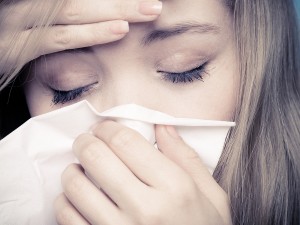 Ultimately, this list of foods to eat to lose weight is a bit more extensive than just 5 and should really include fruits and vegetables of all kinds. A diet full of fruits and vegetables is more likely to result in weight loss than one filled with refined sugars. The following is a list of some extra components to add to a balanced diet in order to achieve weight loss.
Ultimately, this list of foods to eat to lose weight is a bit more extensive than just 5 and should really include fruits and vegetables of all kinds. A diet full of fruits and vegetables is more likely to result in weight loss than one filled with refined sugars. The following is a list of some extra components to add to a balanced diet in order to achieve weight loss.
- Chia Seeds: Chia seeds have many beneficial properties that help them in the goal of weight loss. Chia seeds are a good source of protein, omega – 3 fatty acids (not substantial levels to compensate for supplementation), and fiber. All three of these help with digestion, to decrease appetite, to increase energy, and to decrease inflammation. All of these can be beneficial on the road to weight loss.
- Sweet Potato: Sweet potatoes can be beneficial for weight loss for the reason that they can be a substitute for a regular white potato. A sweet potato has far fewer calories than a regular potato and are low in glycemic index. What this results in is a reduced impact on blood sugar levels which leads to less sugar being stored in the form of fat in the body.
- Hot Water with Lemon: starting each day with hot water with a slice of lemon in it can be beneficial for weight loss for a number of reasons. To start with it can increase metabolism at the beginning of the day meaning more calories burnt. In addition, this drink can stimulate digestion and liver functioning. This can help to process hormones more efficiently and to eliminate toxins from the body. Some sources also suggest that this drink can be a source of vitamin C, which some studies suggest can be important for weight loss.
- Green Tea: many studies have suggested that even just 1 cup of green tea per day can be enough to stimulate metabolism. Green tea can also act as a substitute for coffee and the potential to “drink your calories” through having sugary coffee beverages.
- Water: Drinking water is important for many bodily functions in general. In addition, feeling hungry could be a sign that we are actually just thirsty. By curbing your appetite through drinking water first, this can help with weight loss. Research has suggested that drinking a glass of water before each meal helps to increase potential weight loss by 3lbs compared to individuals who did not drink water before meals. Water can also increase the amount of calories burned in one hour, after consuming 500 ml of water.
Have you benefited from reading this blog? Know someone that would benefit as well? Share, Like, Comment, or Tweet this article, and let me know what you think.
Some of the information provided above may not be appropriate for everyone, please consult with your doctor before trying any of the above. If you are interested in Naturopathic Medicine and wanting a different approach to your health care needs, contact Dr. Elisha Cook ND by calling 519-537-7058 and book your appointment today!



